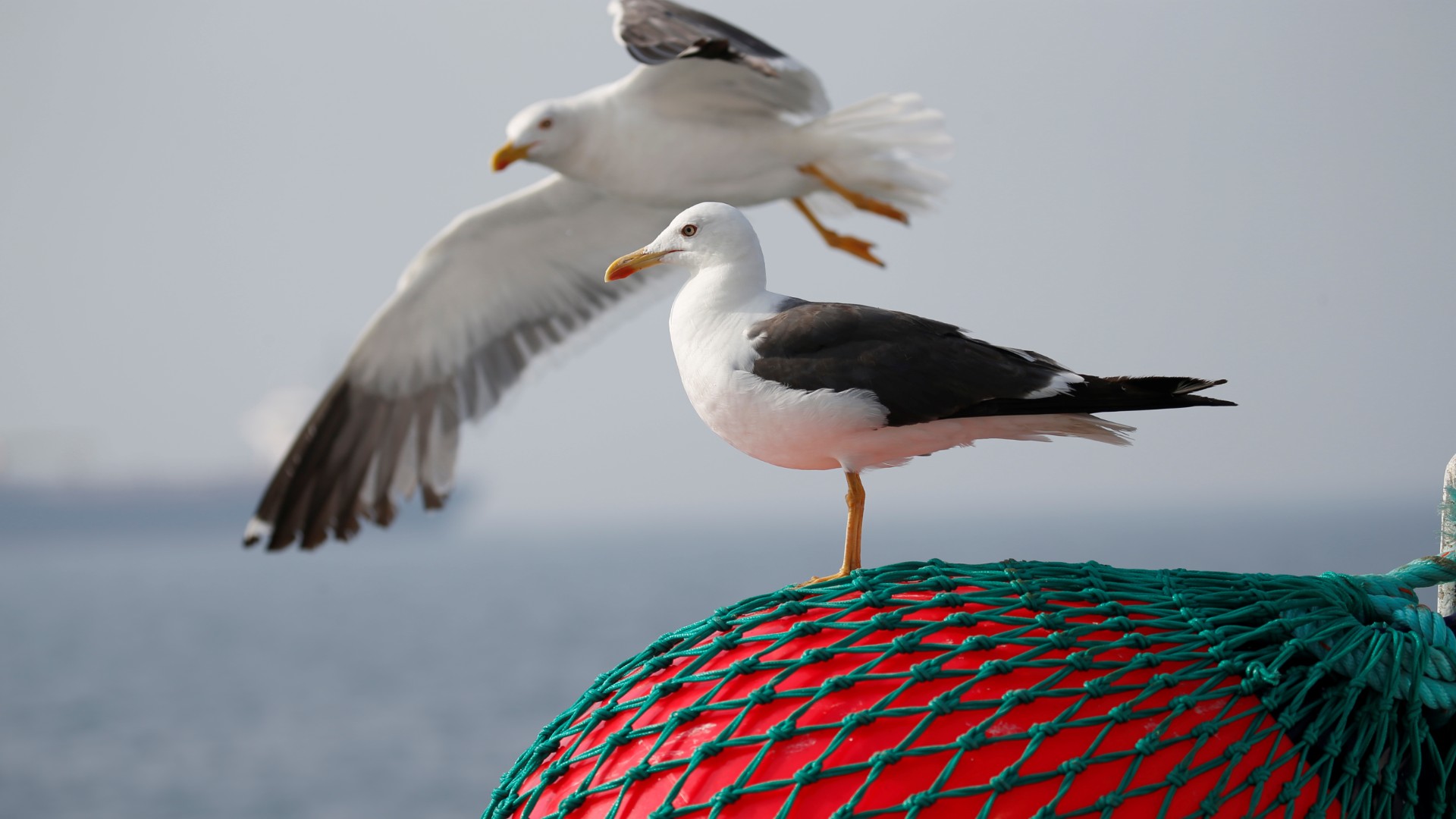Species of gull facing extinction in Finland

The seagull is often perceived to be a pest. They are loud, invasive, and often try to steal food from unsuspecting passersby.
However, not all gulls are the same. There are six different species of seagulls that nest in Finland, and one of them – the lesser black-backed gull – is now classified as an endangered species.
The number of lesser black-backed gulls is currently estimated to be around 7,000 breeding pairs in Finland, making it even rarer than the Siberian flying squirrel, which is also classified as being vulnerable to extinction. If younger members of the species are included in the count, then the population size could be around 20,000, estimates seagull researcher Risto Juvaste.
There is no exact information on the number of Siberian flying squirrels, but the best estimates range from between 35,000 to 143,000.
Poison, predators and human activity
The main reason for the decline of the lesser black-backed population is the low rate of reproduction, which is caused by a number of different factors.
“One of the reasons is environmental toxins. Martti Harju researched the black-backed gulls in the Gulf of Finland and found that due to environmental toxins, the mothers could not properly feed their chicks. One third of the chicks died of liver disease within three weeks,” Juvaste explained.
The species are also disappearing from the Finnish Lakeland area, according to Juvaste. The amount of environmental toxins is difficult to determine, but it is likely that they are having a significant impact on chick mortality.
Predators also pose a threat to gulls. Recent footage captured by hunting cameras showed two white-tailed eagles destroying a black-backed gulls’ nest beside the Viinijärvi lake in North Karelia, leading to the loss of more than 40 eggs.
Aside from the threats from the air, gulls are also vulnerable to land animals too. A single raccoon dog or mink could potentially destroy an entire colony of dozens of birds.
Human behavior is also a factor in the declining population. If a person gets too close to the gulls’ nest, the adults will likely flee, leaving their eggs behind.
Recognizeable “dress suit”
The endangered black-backed gull is best recognized by its “dress suit”, as the species’ back and wings are a darker colour than other gulls, usually black or dark grey.
The most common species of seagull in Finland, the European herring gull (Larus argentatus) and the common gull (Larus canus), are more grey in colour.

Juvaste told Yle that he has been researching gulls for decades, and in recent years he has toured the lake habitats of the black-backed gull by jet ski.
Whilst on one of his sojourns, in near Kesälahti in North Karelia, Juvaste encountered a particularly macabre scene: dozens of dead terns and gulls on a rock. Juvaste said it was unclear what had killed the birds, but speculated that it may have been a predator, such as a fox.
Related stories from around the North:
Canada: Caribou crossing Arctic Canada highway, but hunters asked to hold off for now, CBC News
Finland: Thousands of fish in Finnish lake dead from unknown cause, Yle News
Norway: Arctic fox’s rapid journey from Svalbard to Northern Canada stuns researchers, The Independent Barents Observer
Russia: Authorities in northwest Russia move to protect wild reindeer, The Independent Barents Observer
Sweden: Poachers suspected behind dwindling wolf numbers in Sweden, Radio Sweden
United States: Unique freshwater Alaska seals require special conservation efforts, study finds, CBC News



